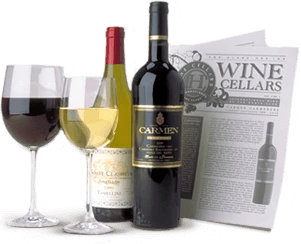Morgadío has emerged as a truly consistent producer of classic Albariño. From vintage to vintage, Morgadío manages to capture the greatness in Galicia’s exceptional varietal, so much so that once again in 2013 Morgadío’s Albariño Rías Baixas comes across as both brilliant and precise. This is a truly dry wine that exhibits sophisticated fruit flavors and pinpoint minerality. Morgadío adheres to the traditional style of Albariño, which means a focused, highly structured wine. The wine’s fruit emerges subtlety, almost imperceptivity. Dry, pure, and beautifully scented, this remarkable white wine exudes an aroma of freshly picked apples and pears. It fills the mouth with fresh, racy flavors before finishing crisp and bracing. Morgadío’s Albariño is a white wine for people who appreciate a truly dry, white wine. The 2013 Morgadío Albariño bears no resemblance to the fruity, oak infused confections that many New World producers call dry, nor is it one of those eviscerated, tasteless white wines that some Old World producers still refer to as “classics.” Instead, Morgadío has fashioned a precisely crafted Albariño of brilliant precision and flavor that will continue to develop in bottle for at least another year or two. We suggest serving the 2013 Morgadío Albariño moderately chilled (40°-45° F).
With the sea so close and playing such an integral part in the lives of the people of Galicia, Rías Baixas pairs the region’s abundant seafood with the region’s finest Albariño. We second the motion. The 2013 Morgadío Albariño Rías Baixas is, indeed, the perfect foil to sautéed scallops, grilled snapper, crabmeat salad, and most everything else that once inhabited the sea. Pan seared halibut; seafood tacos; ceviche; and pork and shrimp stuffed tacos with fried broccoli, black beans and corn, all provide tasty accompaniments to the 2013 Morgadío Albariño. Sushi, sashimi and fresh or fried Thai-style spring rolls also provide superb complements to this wine. We also suggest pairing Morgadío’s Albariño with chicken salads. Cheeses, especially Manchego, Mahon, and mild goat cheeses make good companions, too. Enjoy!
Morgadío is a unique farm and winery in the Rías Baixas (ree-ahs-buy-shuss) appellation of Galicia. Meaning “only son” in Gallego, the Spanish dialect of Spain’s Galician coast, Morgadío specializes in Spain’s most expensive and important white grape variety: Albariño. Within Rías Baixas, there are three separate districts, but none are as great as the Condado do Tea around Morgadío. Located on the banks of the Miñho River in a sunny amphitheater, reminiscent of Germany’s famous Rheingau, Morgadío enjoys a benign climate, southern exposure, and superb terroir of reflective granite that allows it to fashion Spain’s fullest and most notable Albariño.
Morgadío came to life with the recent resurrection of the legendary Albariño varietal in the early 1980s. Owned by the Méndez family of nearby Orense, Morgadío is planted entirely to Albariño and is considered to be the driving force in restoring Albariño to its exalted status as Spain’s foremost white wine. And not only does Morgadío possess one of the largest plantings of the varietal (50 hectares or 110 acres); it has cultivated the technology and techniques that have transformed Albariño from a local legend to an international celebrity. Morgadío produces two Albariños, the estate’s flagship wine (this month’s feature) and Legado del Conde, a lighter style of Albariño meant for early consumption.
Until the late 1980s Galicia’s legendary Albariño grape remained just that – a legend. Before the 1990s much speculation swirled around the origin of the rare and sometimes exceptional Albariño variety, further fueling interest. But it would not be until the grape traveled beyond Galicia that the world would come to know Albariño’s truly pure flavors and natural acidity, traits that would eventually seal Albariño’s position as Spain’s (and one of Europe’s) most expensive wine grapes. However, the high cost involved in making Albariño caused many before this millennium to overproduce the varietal or stretch its production with less expensive grapes, which resulted in inevitable disappointment on the part of adventurous tasters in search of the wine world’s Holy Grail. Formerly, authentic Albariño was produced inconsistently and only in miniscule lots. With the establishment of the Rías Baixas appellation in 1988 and an ongoing movement led by Morgadío to recuperate and assure the authenticity of Albariño, the grape now enjoys a rightful place among Europe’s leading white wines.
Albariño is an indigenous Spanish grape variety whose home is Rías Baixas and the Galician hinterlands of northwest Spain and Portugal. Albariño was once thought to be distantly related to Riesling, but many enologists now believe that Albariño may be more closely connected to the Petit Manseng variety of southwest France, just on the other side of the towering Pyrenees Mountains from Rías Baixas. However, no dry white Petit Manseng can match the body and finesse of Spain’s finest Albariño wines.
Albariño also makes its presence known in Portugal, where Albariño goes by the name Alvarinho. In Portugal, it usually ends up as a light summertime quaff in the guise of Vinho Verde. Surely, nowhere could a single grape variety be more different than Albariño is in Spain and Portugal. While Portugal picks this varietal early and makes a low alcohol wine (8.5%-9% on average), Spain, under the tutelage of the Méndez family and similar minded individuals in Rías Baixas, turns out full-bodied, intense Albariño with aromatic and flavor profiles more akin to Viognier – the greatest white variety of France’s Rhône Valley.
Albariño is now being extensively studied and planted in other locales around the world, including Australia, California, and South Africa. Early reports from winemakers and consumers in Australia appear especially promising for the late maturing Albariño, where extended growing seasons are common and the grape’s firm, bright acidity is much appreciated. A debt of thanks belongs to the folks at Morgadío for helping resurrect the great Albariño varietal in Spain and sharing it with the world.

Enjoy Limited Production Estate
Bottled Wines
Discover limited production estate bottled wines such as Vergenoegd's internationally
acclaimed 2005 Cabernet Sauvignon, imported exclusively for our members.

